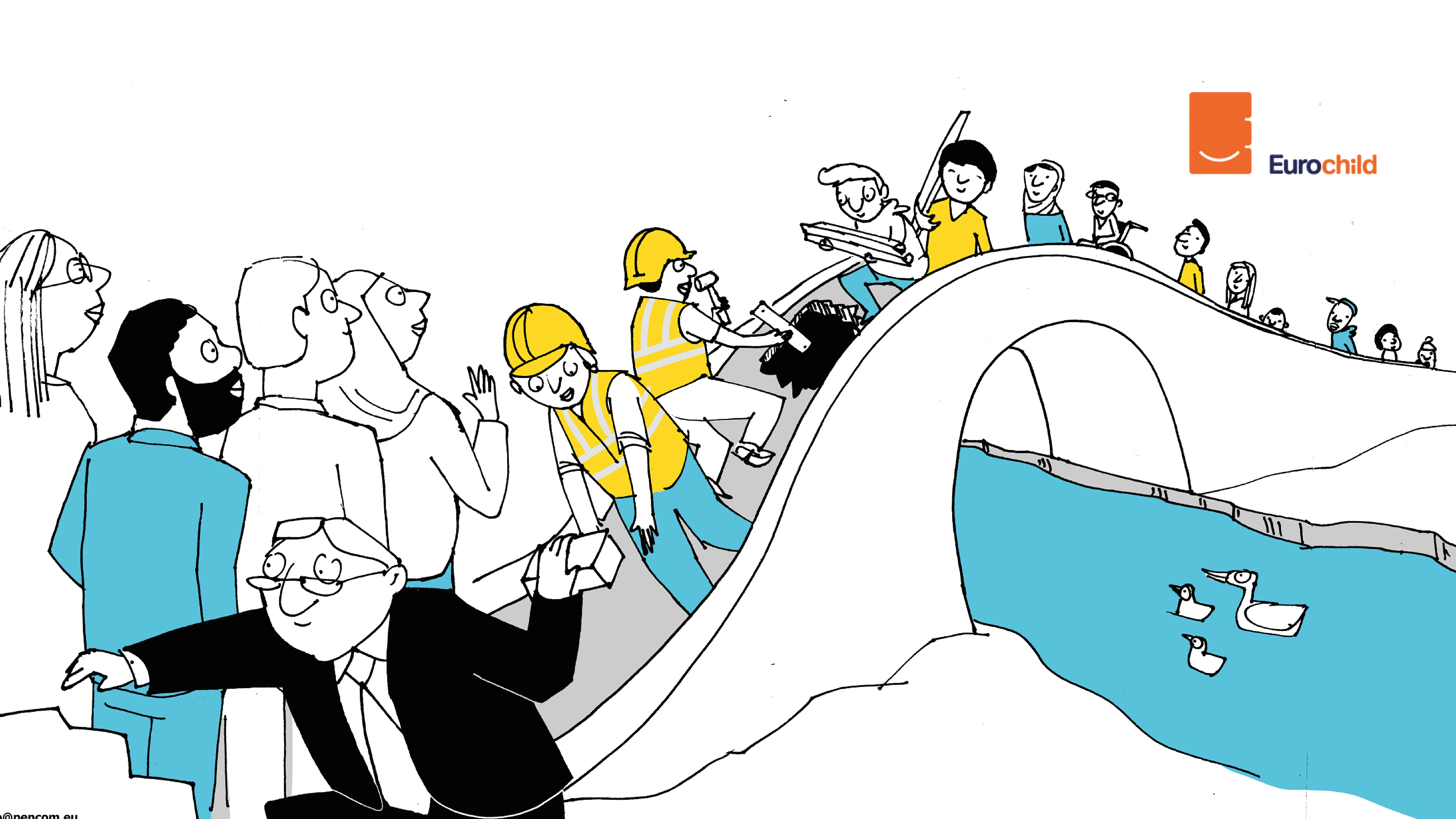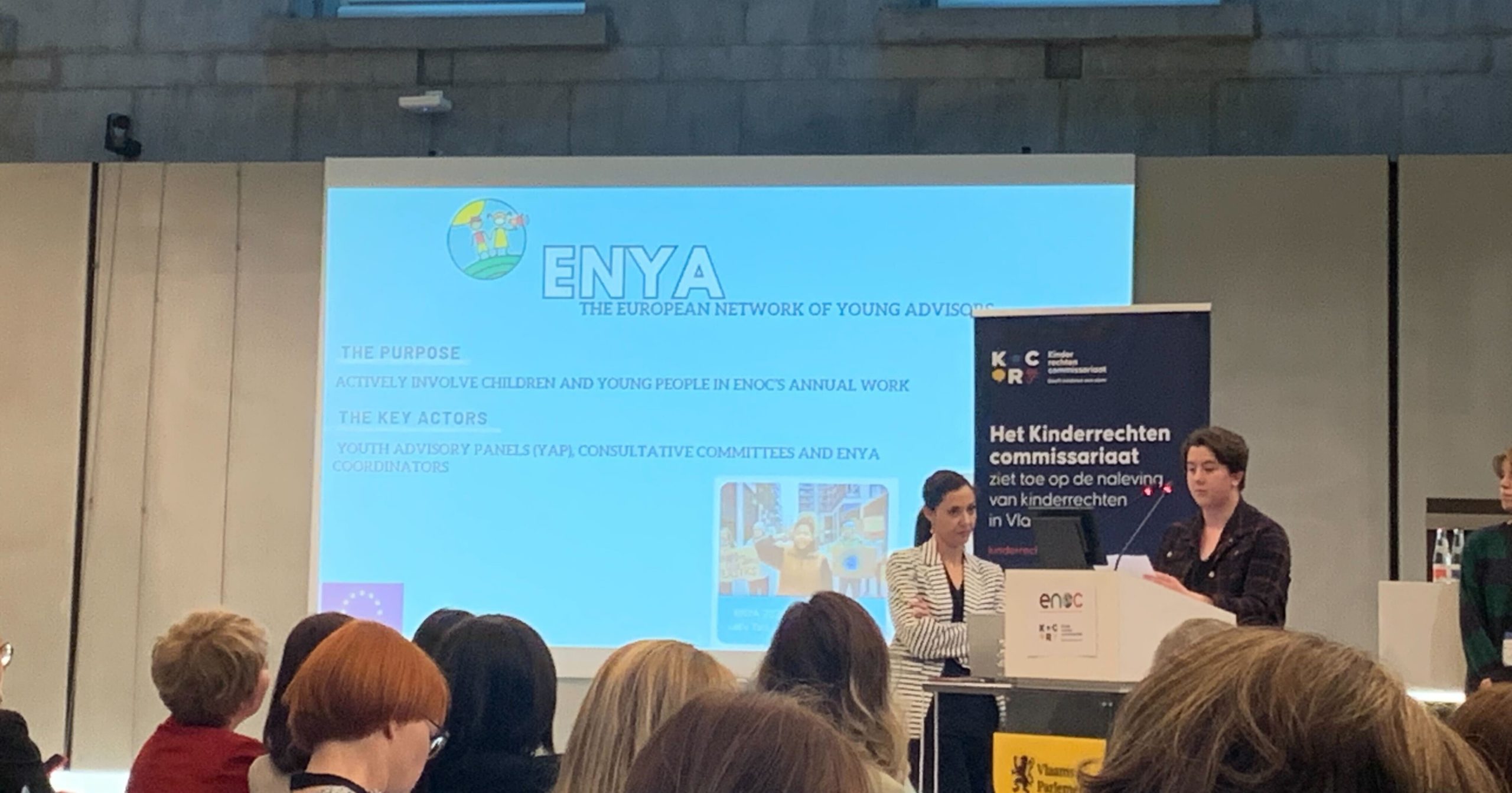How can we improve child participation in EU policymaking?
A joint study on child participation in EU political and democratic life by Rand Europe and Eurochild, contracted by the European Commission, highlights ways to better involve children in policymaking.
Eurochild and Rand Europe were contracted by the European Commission’s Directorate-General for Justice and Consumers (DG JUST) have worked on a study researching current child participation in political and democratic life with the aim of improving child participation at the EU and national level.
Eurochild involved members from 10 different countries who in turn organized child focus group consultations. As a result, 224 children and young people participated in this study and we want to thank Eurochild members below for their efforts.
- Bulgaria: National Network for Children
- Finland: Central Union for Child Welfare Finland
- Cyprus: The Pancyprian Coordinating Committee for the Protection and Welfare of Children
- Germany: National Children’s Rights Coalition Germany and Deutsches Kinderhilfswerk e.V.
- Ireland: Foroige
- Malta: The Malta Foundation for the Wellbeing of Society
- The Netherlands: NJR (Dutch Youth Council), member of the Dutch Kinderrechtencollectief (Child Rights Coalition)
- Portugal: Instituto de Apoio à Criança
- Slovenia: Slovenian Association of Friends of Youth (ZPMS)
- Spain: Plataforma de Infancia
What did we learn from the study?
At the national level, children’s and youth councils, children’s and youth parliaments and the Ombudspersons for Children’s offices (or equivalent) are the most prevalent mechanism of child participation. Also, many regular and one-off initiatives take place in educational institutions.
The study reveals that mechanisms are mostly adult-initiated established in the 1990s and 2000s and while they are good for proposing ideas, they lack evaluation to show evidence of their impact.
While most mechanisms equally involve boys and girls, they are geared towards older children (12 years old or older), and more has to be done to involve younger and vulnerable or disadvantaged children.
What are current barriers to child participation?
Societal views and attitudes about children and their abilities to participate because they are too young as well as power imbalances between adults and children are some of the key barriers to impactful and inclusive children’s participation.
Another barrier are linguistic capacities of children as well as lack of availability and accessibility of information on participation.
Lastly, lack of recognition of children’s participation in legal frameworks and absence of feedback to children are discouraging children from participating.
What can facilitate inclusive child participation?
- Information-sharing and provision of training for children and adults
- Involve children in all stages of policy-making processes
- Create safe spaces for participation, including digital tools and platforms
- Investing more resources for child participation processes and mechanisms
- EU promoting children’s participation in political and democratic life across all levels
- Create national laws and plans to ensure children are included in government decisions
- Ensure child participation in co-creation of policies at European, national and local levels.
- Publish accessible documents and information on all topics children are interested in
- Involve specialist organisations to ensure participation of children from all backgrounds
- Give feedback to children about their impact and more visibility to their inputs
- Support child-led initiatives
What will Eurochild continue to do?
As a network of almost 200 organisations working with and for children, Eurochild is committed to ensure children are co-creators of national, regional and local policies as well as European policies and initiatives. Together with our members we will continue to:
- Contribute to European/national/local plans/regulations to ensure children are part of decision-making
- Train adults and children on child participation, at the EU, national and local level
- Work with our members and specialist organisations to enable participation of ALL children regardless of background and ability
- Advocate for more financial resources to make child participation processes a reality
- Ensure information on participation is accessible to children
- Give visibility to children’s participation



